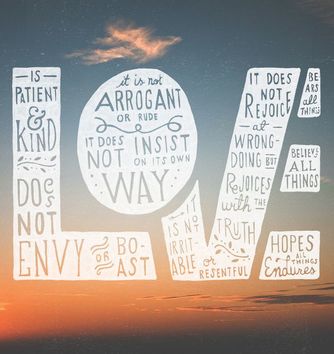
CCLN Jan. 31 2016 “To See Face to Face”
For better or worse, a growing number of people have taken to expressing themselves on their receipts. There was a whole “tips for Jesus” movement a while back that tried to spread the gospel as well as generous tips. One Steak –n- Shake waitress received a $446 tip on a shake costing $5.97. Other servers haven’t ended up so lucky. Remember the pastor who created a huge backlash on Reddit when she left a note on a St. Louis Applebee's restaurant bill refusing a gratuity to a server. The pastor scratched out the tip on the receipt and included the words, "I give God 10 percent, why should you get 18?” Others have left comments, with no tips, advising their servers to get real jobs or lose weight. Servers have gotten into the act, and hot water for nasty comments about children or attitudes, or other slurs against customers.
Whatever you think of tipping, the comments and actions of the server, we leave in an age where our actions or words, with the slightest provocation, can go viral. Receipts or pictures meant for private viewing are shared for millions to oogle at. Microphones pick up words that politians later regret. Jobs are lost, reputations ruined (or enhanced, depending how you look at it). Images, both good and bad, go viral. Remember the police officer who once bought boots for a homeless man? Or the waiter from Houston who refused to serve a table of customers who were being rude to another down’s syndrome customer? Both were proclaimed heroes thought the efforts of social media. What about images and comments left on social media pages that have driven youth to commit suicide?
So what do we do in this this world of instant comments, pictures, and sound bites? We see only what the social media site, the news channel, the stockholders, want us to see. We see dimly, because it is hard, and takes integrity, to capture even the complexity of one simple story – or even one person’s life. As my grandmother loved to say, there’s always more than meets the eye, and there are three sides to every story - your view, my view, and then there’s the truth.
Our passages from Luke today tells of Jesus’ first sermon, his first public encounter of Jesus in the synagogue as told to us by Luke. Jesus selected a reading from Isaiah 61, which harkens back to the Law of Moses, the law of Jubilee, when rest and restoration was ordained for the land and society every 49- 50 years depending how it was calculated. God had anointed Jesus to bring good news to the poor, proclaim release of captives, recovery of sight of to the blind, let the oppressed go free, to proclaim the year of the Lord’s favor. So in this special year, land allowed to rest, land returned to the original owners, the enslaved set free. It is a remarkable law, an impossible law, the law that has never been completely followed. Yet Jesus chose this humanly impossible law, and said, “Today this scripture is fulfilled in your midst.” Jesus asserts his ministry will be a ministry of Jubilee, a ministry of restoration, recuperation, favor, healing and hope—to see people face to face.
Yet the people of Jesus’ home town didn’t see this clearly. Jesus, the enactor of the Lord’s favor? Jesus, a prophet? This Jesus -- Joseph’s son, a mere carpenter? Is he deluded or what? From the gospel of Mark, we know that the people of Nazareth heard the rumors on the grapevine, all the wonders Jesus performed in Capernaum. The miracles. The healings. Now that’s what they came out to see. Not this fantasy nonsense that not even the great prophet Moses was never able to enforce. Wake up, Jesus.
Instead of making nice with the neighbors, Jesus raises the stakes. Look at the prophet Elijah he says. There was severe famine in the land, in his day. But Elijah was sent to the widow in Sidon, a foreigner, not to Israel’s widows. Jesus adds, despite all the lepers in Israel, Elisha was sent to cleanse the Syrian, Naaman- a foreigner and enemy to boot. Why did God favor non-neighbors, his chosen people? Because, Jesus teaches, God’s blessings are for all people.
That was not a message the people of Nazareth could accept. How dare Jesus insinuate they lacked faith. That their vision was dim. That Jesus could accomplish what no other prophet or politician ever had. That the messianic scriptures were fulfilled in their midst. What a tizzy Jesus created. Enraged, they drove Jesus out on his first day home, and would have thrown him off a cliff if he hadn’t escaped.
Paul talks us today in his famous passage on love, the problem of seeing dimly. In the ancient world, mirrors were made out of polished metal, and the image was always unclear and somewhat distorted. The city of Corinth was in fact famous for producing some of the best bronze mirrors in antiquity. But at their best, they couldn’t give a really clear vision. And that’s what happens with us. Our prejudices, presumptions and judgments, our emotions cloud our vision. So none of us have 20/20 spiritual vision. There are no glasses, no laser surgery that can give us the vision we are created to obtain someday. However, Jesus is that corrective lens that can bring our sight more in alignment with the divine vision. Through Jesus we can see more clearly, face to face, the kingdom of Love God has laid down, in the law of Jubilee, in God’s favor seen Jesus’s ministry and sacrifice on the cross.
Paul uses this term of seeing God face to face to describe complete, unhindered fellowship with God, only accessible through the practice of love.
Seeing face to face means an intimate relationship where each side becomes fully known to the other – inside and out. We know each as we truly are. Not through twitter, facebook, reddit, or instant messaging, but direct, in the flesh.
It is not surprising that Paul’s words about seeing face to face crowns this beautiful passage on love. Because love is the polish that burnishes our lives. Love perfects how we see the world around us, to bring our sight, millimeter by millimeter, into alignment with the vision of Jesus. Love carefully polishes away the judgments we hold which get in the way of caring. Love removes the stains and dust that distorts the image of God, so that we can live as love dictates and mirror the attitudes and actions of Jesus. Seeing each other face to face chips away at presumptions we make until we can take in the whole person – just who they for, for whom they are.
When William Montague Dyke, the son of one of the most prosperous barons in England, was ten years old, he was blinded in an accident. Despite his disability, William graduated from a university in England and while there, he fell in love and became engaged.
Not long before the wedding, William had eye surgery in the hope that the operation would restore his sight. If it failed, he would remain blind for the rest of his life. William insisted on keeping the bandages on his face until his wedding day. If the surgery was successful, he wanted the first person he saw to be his new bride.
The wedding day arrived. William's father, Sir William Hart Dyke, and the doctor who performed the surgery stood next to the groom, whose eyes were still covered with bandages.
As soon as the bride arrived at the altar, the surgeon took a pair of scissors out of his pocket and cut the bandages from William's eyes.
Tension filled the sanctuary. The congregation of witnesses held their breath as they waited to find out if William could see the woman standing before him. As he stood face-to-face with his bride, William’s words echoed throughout the cathedral, "You are more beautiful than I ever imagined!"
One day the bandages that cover our eyes will be removed. When we stand face-to-face with Jesus and see His face for the very first time, His glory will be far more splendid than anything we have ever imagined in this life. Yet Jesus wants us to have a taste of this gift now. We see Jesus face to face when we love one another as he commands. Let us stop and think for a moment, just of the people sitting around us and who we meet day to day. If we remove the bandages, the judgments and opinions that blind us, what would it be like to say, “you are more beautiful than I ever imagined.” What would it be like to hear this, and take it in.
This is what love does. Jesus chose to see people face to face, sinners, outcasts, the blind and lame, up close and real. Jesus calls us to extend ourselves, especially when it’s hard. To see that caring transcends language, nationality, or any other barrier that could be put up.
So will we push Love away, drive it out, enraged at the challenge? Or will embrace it, even if we see but dimly what is being revealed, but through the loving, come to see plainly, face to face?
Let us take the bandages off. Let us put on the corrective lens of Jesus. We are called like Jesus, like Jeremiah was, to be a people of restoration. To bring good news to the poor. To work for release of those held captive or oppressed. To work for sight for the blind. To proclaim God’s favor. To meet each other face to face. As we do this, we see Jesus, in our midst.
And it is more beautiful than we can ever imagine. Amen.
http://josiahaudette.com/2015/03/08/love-the-church/
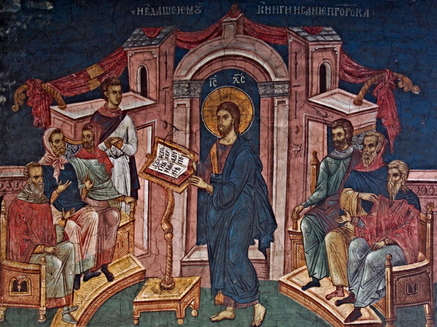
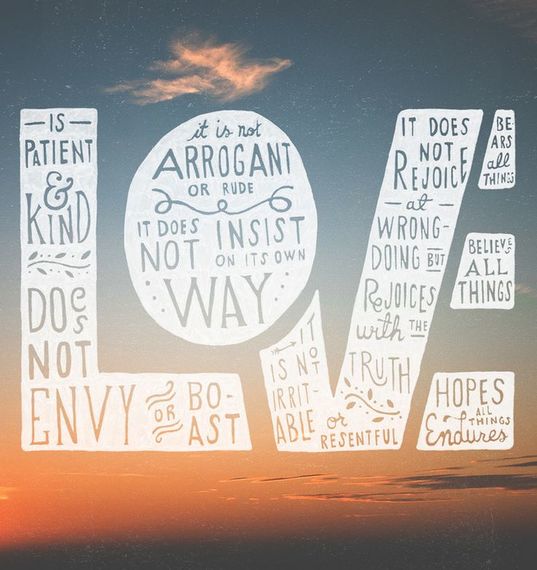

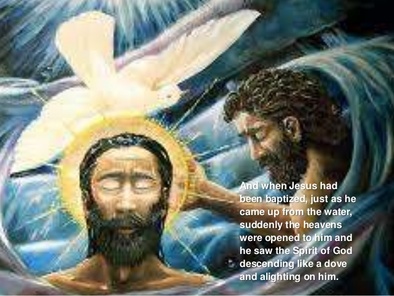
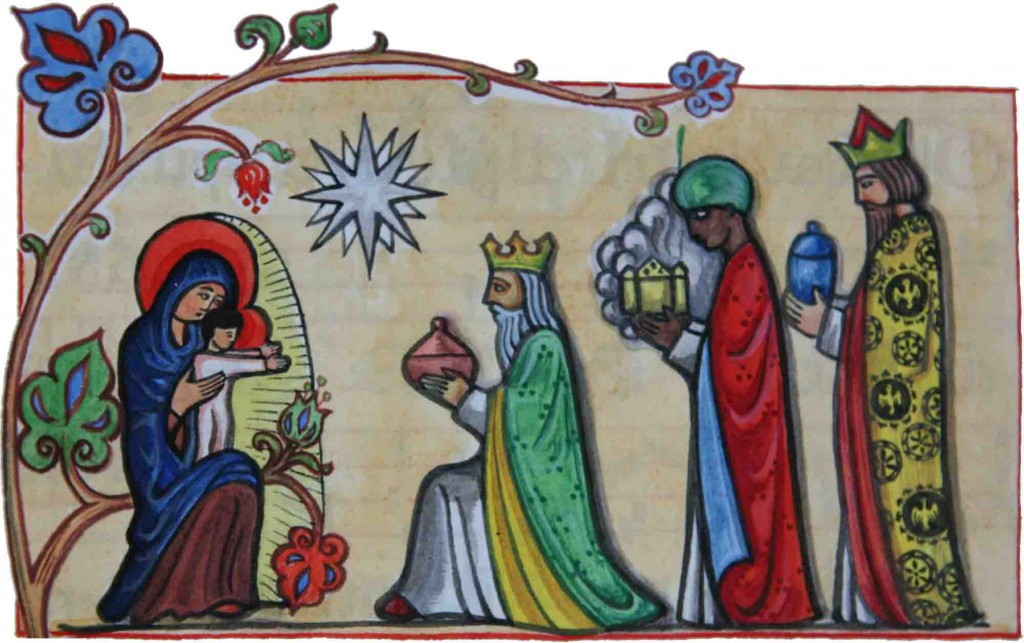
 RSS Feed
RSS Feed